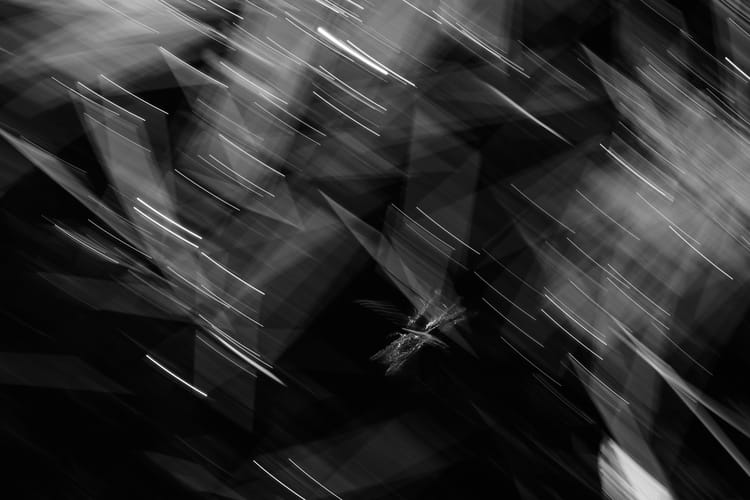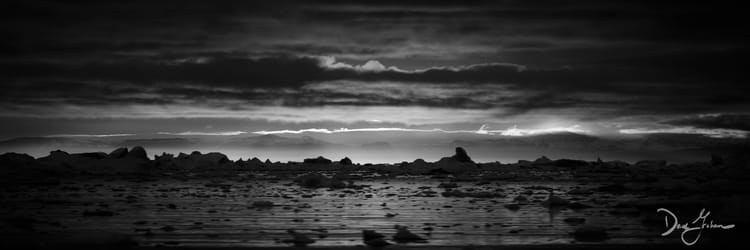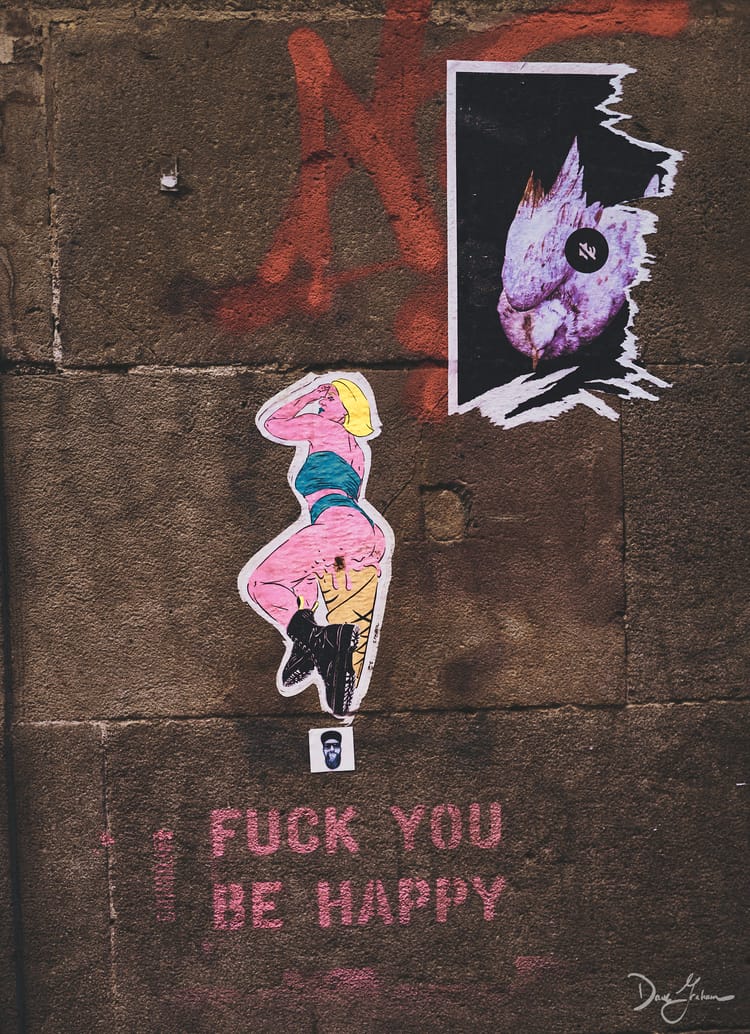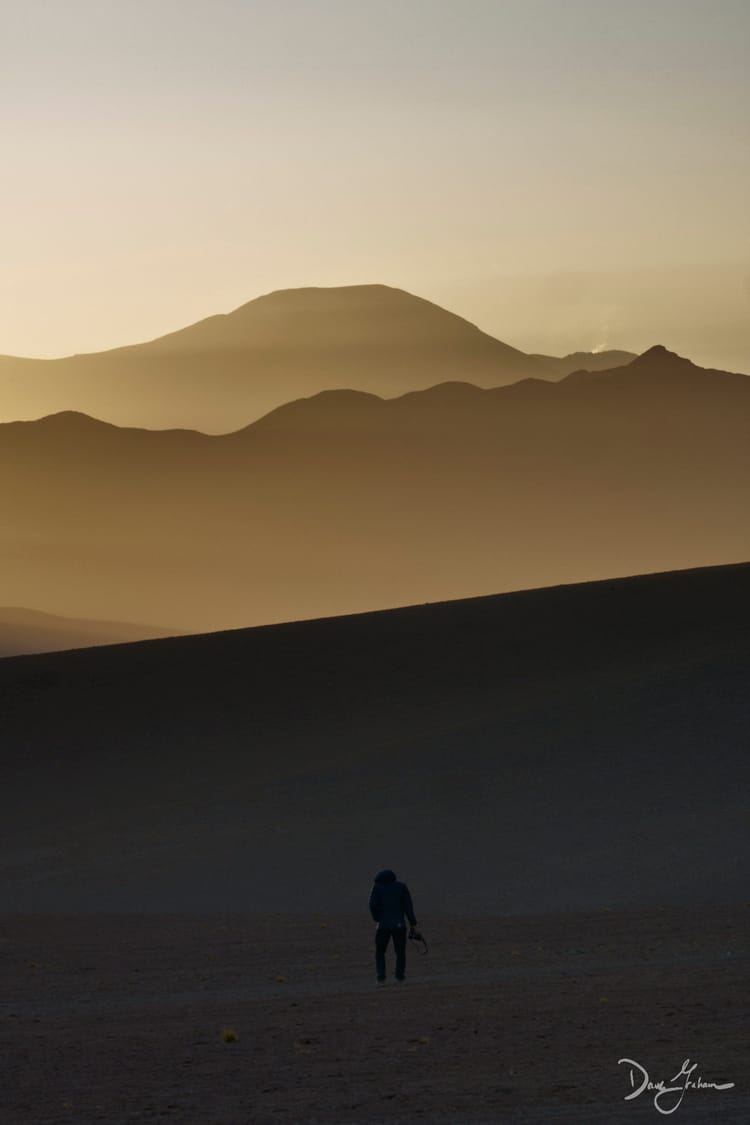Bridges
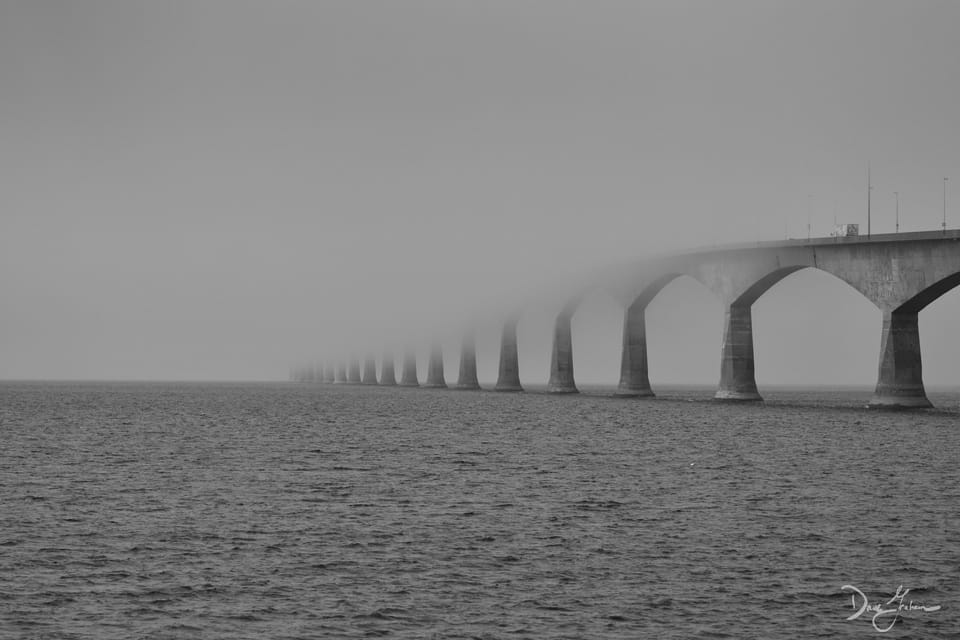
Where we end up may not be where we should be
Bridges are some of the world's most boring and simultaneously delightful engineering works. They can be steel and concrete monoliths, designed around an ethos of function over form, weathered by decades or centuries of Nature’s fury. They can be concrete forms, tapered and moulded into a fine artistic statement of humanity’s progress and prowess, designed to enliven our senses to our untapped potential. Or, they can just be rudimentary designs, carved from stone, nailed together with wood and scrap, designed by the fallen to enable trespass from one side of something to another. Boring in their function, delightful in their crafting.
They’re magnificent creations regardless of inherent design because they answer the question: what exists on the other side? Their purpose, potential, and position enable something greater than the sum of their directly engineered parts.
Peeking through the fog on a cold morning in Prince Edward Island, I was reminded of these thoughts as the Confederation Bridge emerged. Having traversed its length just a scant few days before in the quiet hours of 2 am, I had a chance to see it in the daylight hours, under the gentle covers of a morning’s fog. It’s not unlike the Golden Gate Bridge, with its piers and foundations, and yet, unlike that West Coast edifice of engineering excellence, it’s wholly and distinctly different.
Rather than being suspended by wires, it’s supported by stanchions and piers. Rather than bare steel, its concrete, asphalt, and steel are mixed together to form a more sculpted, embodied whole. It’s a bridge between an island, a way of life, and the greater world across the Northumberland Strait in New Brunswick. It’ll cost you to cross over, but only on the way back to the ordinary because, in the wisdom of the tourism and provincial government (no doubt an accident), it was decided that to welcome people without cost was divine, but to leave these halcyon shores would be hell. And so, a toll was created for the seasonal exodus of vacationers, part-timers, and residents.
In a more metaphorical sense, bridges create a sanctioned trespass, a shift of place and provenance from here to there. It’s permission to be in another world, another location, another space apart from where you once were. It’s a beacon of “otherside-ism,” an invitation to let go of the past, enjoy the present, and prepare for the future.
Perhaps I’m overthinking the metaphor. After all, bridges have existed, in one fashion or another, because of basic needs and resource scarcity. The world itself shaped land bridges and, in the agitation of geologic activity, separated masses, one from the other. Soon, we’ll need another bridge because the world won’t stop in her agony of occupation. As soon as it understood that places couldn’t be reached without intervention, humanity built bridges to conquer and consume. Seas were bridged by boats, streams and rivers by stone and earth, and tribes, nations, and people were decimated in the name of whatever unholy god was claimed to be behind it all.
Seldom has humanity's history shown that an altruistic rationale for building and creating “things” is the underlying rationale. More often than not, our desire for trespass, consumption, and control leads us from one place to another. We’ve practised economic exhaustion, resource deprivation, and a shift in our consumption to prompt the need for these bridges to be built.
So here we are today, bridges built between the already and the not yet, between the here and now and the what-may-yet-be, and we’re finding out that perhaps all this trespass has led to more conflict, agitation, and acrimony. Perhaps, for all of our advancement, our no-holds-barred approach to taking has left too many wanting, quiet in their desperation but getting louder every minute. Perhaps what we’ve always assumed to be our manifest destiny is truly an unrelenting trespass upon the souls of others.
I wonder about these things and about my role in what once was inviolate. While I may not be directly responsible for the erection of such things, I am responsible for where my feet, body, and wheels land. I am responsible for cleaning up after myself, for leaving no trace of my humanity on the lands where I wander, for acknowledging that my ancestors took without asking, killed without reason, and violated the covenant between people and place without second thought. I have committed a trespass, knowingly and not, and it behoves me to understand how it is I can make amends.
So, on this day, I ask you: what is your trespass? What is the bridge you’ve crossed to a place unfamiliar and foreign? What have you done, in your trespass, to remedy the sins of past generations? Perhaps there is no answer at this moment, which must be sufficient for now. But, should no answer come, we must ask ourselves “why?” and be prepared to account for our actions, lest Nature and her beloved prosecute us to our bitter end.
May it ever be so.

